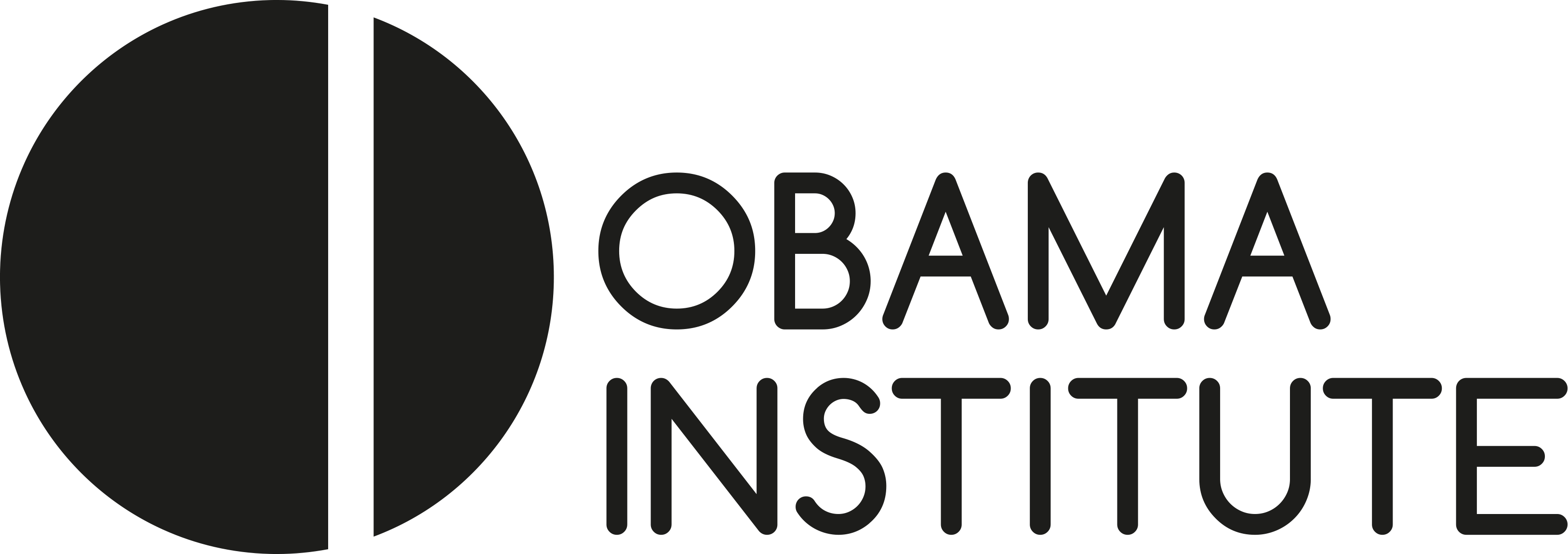Regulations of the
“Obama Institute” (OI) research platform
within the Department of English and Linguistics,
Faculty of Philosophy and Philology
(Resolution of the Faculty Council on 30 Nov. 2016)
Preamble
“The Obama Institute (OI) researches the roles of the USA in a changing global world in the most diverse areas, including culture, history, literature, media, economics, religion, medicine, the arts and music. The research undertaken by the OI is interdisciplinary and transnational and leads the way in the new definition of area studies and cultural studies in the 21st century. In doing so, the OI fills a gap in current research by no longer restricting American Studies to the national borders of the USA. The OI studies not only processes of cultural exchange, but also shifting relations of the most various kind. Staff from different research groups are currently working collaboratively across disciplines, including scholars of Cultural and Literary Studies, Law, Geography, History and Sociology.”
§ 1 (Tasks)
The OI undertakes interdisciplinary and transnational research on the roles of the USA with the most diverse approaches, including how nation-states such as the USA are redefining themselves at the beginning of the 21st century, how the complex demands of global migration and refugee displacements contribute to new forms of social relations, and how communication – such as between indigenous groups and settler societies – can be opened.
§ 2 (Members)
The work in the areas outlined in § 1 is principally a prerequisite for membership in the OI. Founding members are those members of the executive board, advisory board, and associate members who are named in the appendix to these regulations. The executive board will decide on the acceptance of further members (§ 3).
§ 3 (Executive Board)
The executive board consists of professors from the teaching area American Studies in the Department of English and Linguistics, Faculty of Philosophy and Philology, and from the American Studies, British Studies and Anglophone Divisions, Faculty of Translation Studies, Linguistics and Cultural Studies.
§ 4 (Tasks of the Executive Board)
The Executive Board has the following tasks:
– Advising and deciding on basic matters concerning the OI
– Development of the conceptual direction and the research program
– Deciding the financial and personnel arrangements
– Electing the OI Director
– Advising and deciding on the acceptance and exclusion of OI members.
The Executive Board will meet at least twice per semester.
§ 5 (Director)
The Director of the OI is a member of the Executive Board and is elected by the other members of the Executive Board. The term of office will usually be one year. The Director’s role will be assumed in rotation by the members of the Executive Board.
§ 6 (Tasks of the Director)
(1) The director represents the OI externally. The rules of § 79, Subsection 1, No. 1 of the Higher Education Act und § 9, Subsection 1 of the organizational regulations of the Department of English and Linguistics are not affected. (2) The director is responsible to the Executive Board. (3) The Director can, in urgent, pressing circumstances effect interim decisions on behalf of the Executive Board. The Executive Board must be informed immediately; the Board can annul the interim decision or measure in so far as this is not demanded on legal grounds or so long as third-party rights were not created as a result of the decision. (4) The director shall inform all members of the Advisory Board and all Associate Members concerning the current projects of the OI.
§ 7 (Advisory Board)
The Advisory Board is formed of: representatives with American Studies expertise in Rhineland-Palatinate, the Atlantic Academy Rhineland-Palatinate e.V., as well as outstanding researchers in Germany and abroad.
§ 8 (Tasks of the Advisory Board)
Via (virtual) conferences once per semester, the Advisory Board advises on questions and issues relating to the research strategies of the national and international collaboration with the Executive Board members.
§ 9 (Associate Members)
The Associate Members are Mainz University scholars. They shall establish and ensure the interdisciplinary networking of the OI at JGU.
§ 10 (Tasks of the Associate Members)
Associate Members will be consulted on the basis of their research specializations as well as their expertise for advice in ongoing conversations and will work jointly with members of the Executive Board on the development of the research program.
Appendix
Executive Board Members
Prof. Dr. Mita Banerjee
Prof. Dr. Jutta Ernst
Prof. Dr. Alfred Hornung
Prof. Dr. Axel Schäfer
Prof. Dr. Oliver Scheiding
Advisory Board Members
Prof. Dr. Herman L. Bennett (CUNY)
Jun.-Prof. Dr. Florian Böller (RPTU Kaiserslautern-Landau)
Prof. Dr. Martin Brückner (U of Delaware)
Prof. Dr. Rita Charon (Columbia U)
Prof. Dr. Shelley Fisher Fishkin (Stanford U)
Prof. Dr. Paul Giles (U of Sydney)
Prof. Dr. Craig Howes (U of Hawaiʻi)
Prof. Dr. Ursula Lehmkuhl (U Trier)
Prof. Dr. Greg Robinson (U du Québec)
Jun.-Prof. Dr. Nele Swallisch (U Trier)
Dr. David Sirakov (Atlantic Academy Rhineland-Palatinate)
Prof. Dr. Werner Sollors (Harvard U)
Prof. Dr. Elizabeth West (Georgia State U)
Prof. Dr. Charles Wilson (U of Mississippi)
Prof. Dr. Zhang Longxi (City U of Hong Kong)
Associate Members
Prof. Dr. Manfred Beutel (Psychosomatic Medicine)
Prof. Dr. Dieter Dörr (Law)
Prof. Dr. Thomas Efferth (Pharmaceutical Biology)
Prof. Dr. Oliver Emrich (Management and Social Media)
Prof. Dr. Anton Escher (Cultural Geography)
Prof. Dr. Friedemann Kreuder (Theater Studies)
Prof. Dr. Matthias Krings (Anthropology)
Prof. Dr. Franz Rothlauf (Economics)
Prof. Dr. Marc Siegel (Film Studies)
